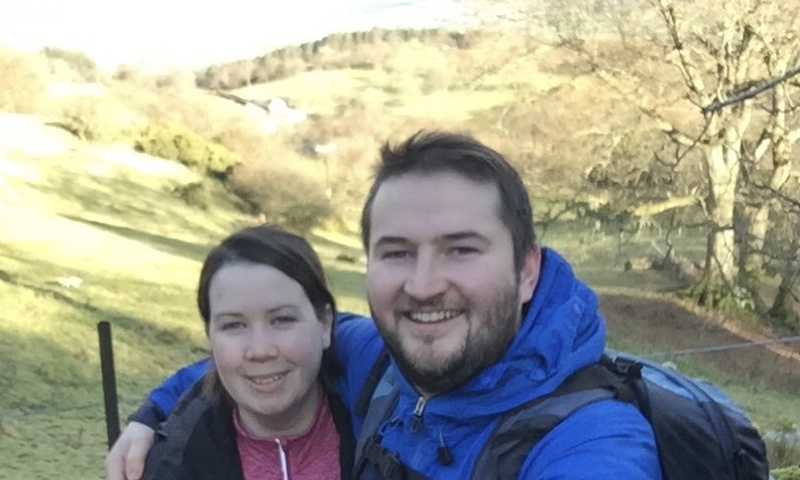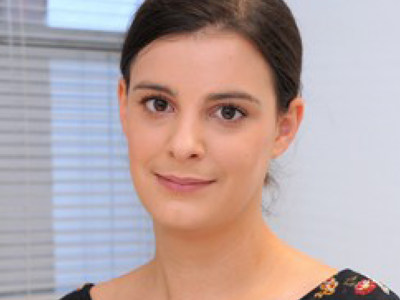
Health board lifts ban on maternity ward visiting following threat of legal action
Betsi Cadwaladr University Health Board has lifted its ban on maternity ward visiting following the threat of legal action by a couple expecting their second baby.
Posted on 04 June 2021
Dr Lucy Williams and her husband Dr Lorin Davies together with Birthrights, a charity which advocates to improve the maternity system, sent a judicial review pre-action protocol letter to the health board, challenging its postnatal visiting policy during the COVID-19 pandemic and calling for the restrictions on visitors to the postnatal wards to be relaxed.
They said the ban constituted a particularly severe interference with their and their child’s rights under Article 8 of the European Convention on Human Rights, the right to family life.
The letter was immediately followed by a change of policy by the board, which has now indicated on its website that it will allow visiting on the ward by appointment. Visitors will be asked to complete a COVID-screening questionnaire and have their temperature checked before entering the wards.
Dr Williams, Dr Davies and Birthrights have given a cautious welcome to the move, saying it is a positive shift. However, they are waiting for a formal response to their legal letter and say they will wait to see the details of the board’s maternity visiting policy before they decide whether to continue with their legal action.
Represented by Leigh Day solicitors, the couple and the charity say they will be watching closely to see that the change of policy makes a real difference to families with newborn babies.
Policies restricting the attendance of birth partners during labour and visiting on maternity wards following births have been a source of intense pain to families throughout the COVID-19 pandemic. While other health boards changed their policies in response, the visiting policy of Betsi Cadwaladr University Health Board has been significantly more restrictive.
It had meant that when Dr Williams’ baby is born in December, at Ysbyty Gwynedd, run by the board, Dr Davies would not be able to visit his wife and baby while they are on the maternity ward. The policy only allowed visiting on maternity wards in exceptional circumstances.
As well as being a breach of their Article 8 rights, Dr Williams and Dr Davies said the enforced separation was also a breach of the Guidance issued by Welsh ministers in November 2020, which said that visiting could be facilitated with the agreement of the nurse in charge of the ward, and also breached the Guidance by failing to tailor its policies to the local situation.
Until this week’s changes, the policy meant that although Dr Davies could be present during the last part of his wife’s labour, within an hour of delivery he would have to leave the hospital and not see them again until discharge. Dr Williams feels her freedom to make the best choice for her delivery is constrained by considerations of how long her husband will be able to stay with her.
Following a difficult experience in the birth of their first child in 2019, Dr Williams and Dr Davies say they launched the legal action to prevent further distress this time around.

Dr Lucy Williams said:
“We’re cautiously pleased that BCUHB have taken this first important step to amending their cruelly restrictive maternity visiting policy, and look forward to the full details of how visiting appointments will work. However, we hope they will now make reviewing the rest of their policy a matter of urgency.
"Women deserve access to the practical and emotional support of their partners throughout labour, birth, and those first early days, partners have a right to be with their new-born babies. With restrictions easing throughout the country it shouldn’t be easier to spend an afternoon in Marks and Spencers than on a maternity ward.”
Maria Booker, Programmes Director at Birthrights, said:
“Excluding partners from maternity services after birth is draconian and disproportionate. We are delighted that Betsi Cadwaladr has belatedly recognised this. But it shouldn’t take a letter from lawyers to force change. Health services must always have a good reason for any restriction on the right of families to be together.
“We welcome this step in the right direction but we also look forward to receiving a full explanation from the Health Board about why remaining visiting restrictions in maternity services are necessary when individuals can go to a pub, a restaurant or mix indoors with other households.”
Leigh Day solicitor Sophie Wells said:
“We are very pleased that Betsi Cadwaladr has acted so quickly following receipt of the Letter Before Action. Although we will carefully consider the finer details, their new policy indicates a welcome step forward.
“Policies which restrict women’s access to their preferred birth partner and non-birth parents’ access to their newborn children, allowing them time together as family, must be in accordance with the law and proportionate. Betsi Cadwaladr’s revised policy indicates that they accepted their previous policy was unlawful. We hope that they will now also ensure that their new policy is implemented in a way that strikes an appropriate balance between protecting staff and service users from the risk of COVID-19 and safeguarding the human rights of the families they care for.”
Leigh Day has instructed Jude Bunting of Doughty Street Chambers.



